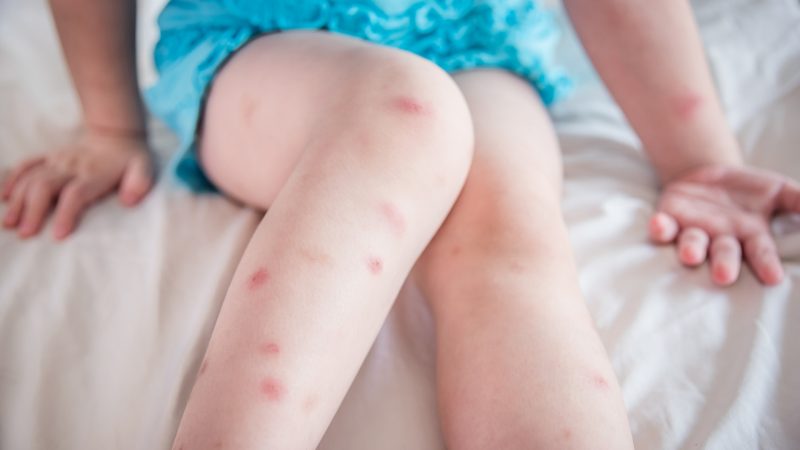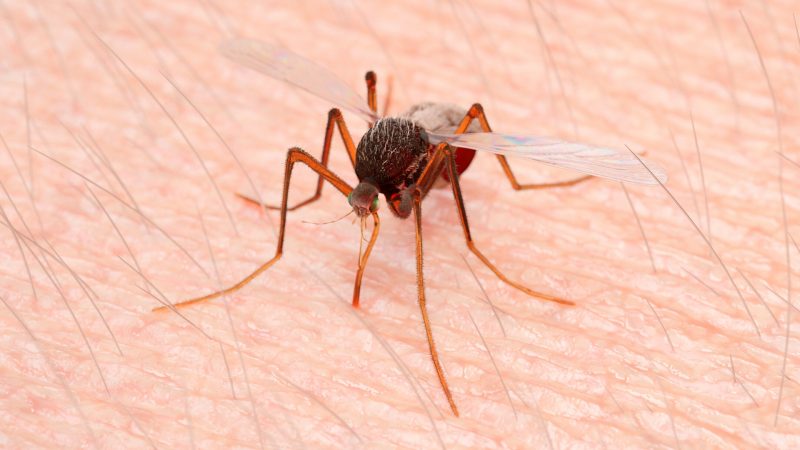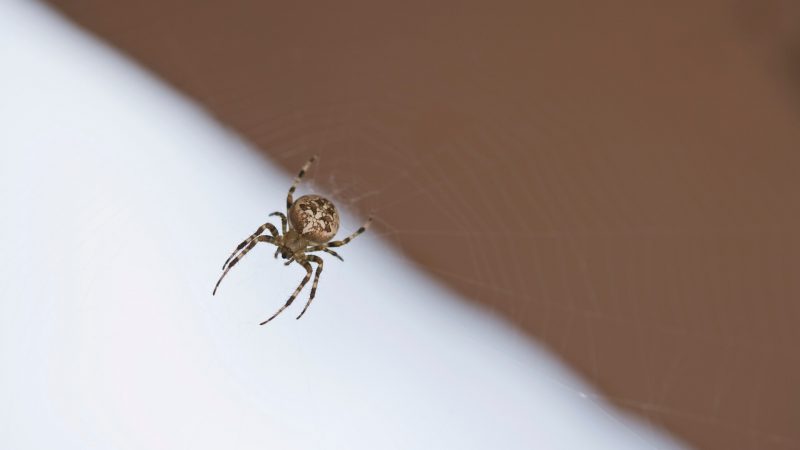Bed bugs won’t make a major announcement as they invade your house. You only wake up one day and your skin is riddled with bites that cannot be explained, upon taking a closer look, you realize that it looks like a mosquito bite. This a misconception that may lead you into dismissing the potential danger of an infestation. In many cases, people will discover that these bites are in fact bed bug bites.
So how do you treat bed bug bites? Bed bug bites are not toxic and treating them actually means just easing their irritation. This can be done by applying some soothing oils like calamine lotion or using anti-itch creams. In case your sore spots break out into open welts, wash them with soap and water. Ensure that your soap isn’t medicated or perfumed in order to prevent irritation.
This article goes deeper in an effort to give you more details on bed bug bites. Read on and discover ways of beating these pests in their own game and how to distinguish between bed bug bites and other insect bites. You will also get product recommendations that will help you ease the bed bug bites and a few more facts about bed bugs that will help you fight them and eventually win the battle.
What Do Bed Bug Bites Look Like?

Bed bug bites can be found anywhere on the body, anywhere where your skin is exposed. This means that all your hair-covered body parts are quite exempt but every other body part is fair game for these pests.
Bites are frequently discovered on the hands, neck, face, shoulders, legs, and arms. These are body areas most likely to be exposed to bed bugs while sleeping. Although this isn’t always the case, bed bug bites frequently occur in small clusters and may follow a line or zigzag pattern.
The typical appearance of a bite is a small, flat, or raised spot that can later swell, itch, turn red, or form blisters. Bed bug bite reactions don’t usually manifest right away after being bitten; they might take a few days to start manifesting symptoms. Not everybody, though, responds the same way to bed bug bites.
Numerous distinct factors influence the size of bed insect bites. When bed bugs bite to obtain a blood meal, they also inject an anticoagulant with their saliva. The size of the bug’s bite and how the victim responds to it are largely determined by this anti-coagulant. The size of the bite will vary as well because different people will react differently to a bed bug’s bite.
Symptoms of Bed Bug Bites
The day after being bitten by bed bugs, some people experience swelling, red welts, or itching. On some people, bites might not show symptoms for a few days or ever. Many bed bug bites do not cause any noticeable symptoms in the victim and oftentimes do not even leave a mark.
This is how bed bug bites look, with some of the symptoms:
- Red (depending on your skin color)
- Swollen
- A visible dark spot at the center of the bite
- Bites can appear in a line or have a zig-zag pattern
- They are itchy
- Burning sensation
- Bites can develop into welts
- May develop blisters
People react differently to bed bug bites. This means that the above symptoms will be different for every individual. Some people do not even realize that they are being fed on by bed bugs and while that may be a blessing in disguise, it might also lead to a severe and unnoticed infestation. While the itching may be very irritating, it may act as a motivator that prompts you to get your home treated early on.
How Do Bed Bugs Bite?
Since bed bugs are blood feeders who rely on blood as their food source, blood must be consumed in order for them to survive. Typically, a bed bug will bite multiple times. A bed bug will start eating once it has inserted its mouthparts and located a suitable blood vessel.
Are Bed Bug Bites Dangerous?
Bed bugs are not considered to be dangerous. However, if bed bug bites are not kept clean and sterile and are scratched, a secondary infection may develop. This might lead to more bleeding and swelling. Secondary infections that are brought on by bed bug bites can affect children, the elderly, people with weakened immune systems, and people who are bedridden, in particular.
Do Bed Bug Bites Itch?
Some people can experience the itching sensation caused by bed bug bites. Other people go on with their lives oblivious to the bites while another group tends to get severe reactions to the bites.
When it comes to these severe cases, although rare, some victims were even rushed to the hospital. One man was reported to experience anaphylactic shock while another seemed to experience asthma attacks due to sleeping in a bed bug-infested bed, the asthma attacks subsided after the bed was treated for bed bugs.
Related: Are Bed Bug Bites Itchy?
How Long Does the Bed Bug Bite Last?
Bed bug bites duration varies with the host. This means that since people react differently to bed bug bites, the duration of the bite also varies. It has been noted that the more one gets bitten by these pests, their bodies become more reactive to the bug’s saliva and can feel the bite as soon as the bed bug is done feeding.
Some people will only go through a short duration where their skin is continually swollen from the bites while others suffer from the swelling for a longer duration of up to two weeks.
Where Do Bed Bugs Bite?
Bed bugs bite any part of the skin that is exposed. Your head and other hair-covered body parts are quite safe from the assault of these pests.
They typically focus on your upper body parts but this doesn’t mean that they cannot bite your lower body parts as well. This may be a result of the carbon dioxide being concentrated around your head area when you sleep. Luckily, bed bugs can’t transfer any diseases through their bites.
Bed Bug Bites Treatment
In the same way that bed bug bites affect people differently, their bites also vary. Some bites only last a few hours and your skin goes back to its previous look much like a mosquito bite. Most information out there, however, will tell you that bed bug bites will last around two weeks before completely going away.
This means that your body will be covered in bites because bed bugs are always in clusters and every night at least one or several of them will feed. This will certainly require you to arm yourself with home remedies for treating bed bug bites.
For treating bed bug bites you can use some of the following things:
- Anti-itch creams or maybe this type of calming cream that is doctor-approved, or better yet try using calamine lotions.
No products found.
No products found.
- The itching can also be relieved by using over-the-counter allergy medication.
- Any pain caused by these bites can easily be treated by administering over-the-counter pain relievers. But for anything more severe, you should consult with a doctor.
- Any cracked skin should be cleaned using water and plain washing soap. Avoid using medicated or perfumed soaps which may irritate the skin further.
If you think you have a serious skin problem go to the doctor, maybe you have a more serious condition that was not caused by bed bugs.
How to Prevent Bed Bug Bites? | Tips and Guide
Bed bugs cannot bite through fabric. Their mouthparts are especially weak and are only capable of piecing skin but hardly any other surface. This characteristic even makes it impossible for them to bite through very thin surfaces such as paper.
So, knowing how weak their mouthparts are is helpful because it means that covering your body with any form of fabric prevents bed bugs from biting you.
Unfortunately, there is no bed bug repellant creams or sprays like those in the market for other insects, e.g. mosquitos. So, the only other way to fight bed bugs and keep them away from your sleeping form is by playing defense.
One way of doing that is covering your body as mentioned above while the other is covering your mattress and box spring with protective anti-bed bug covers (encasements).
No products found.
These covers keep the bed bugs that are already in the mattress and box spring right where they are. It also ensure that they suffocate and die in there after being enclosed for a while.
Another defensive measure is vacuuming your mattress and your bed frame. This will eliminate any bed bugs currently present and will give you some peace for that night. This may need to be done continually to ensure that any new bed bugs are removed regularly.
Pests Bite Comparison (Bed Bugs, Mosquitos, Fleas, and Spiders)
Bed bug bites vary with every person who gets bitten. With this fact, then it becomes rather difficult to identify whether those itchy bumps on your body are in fact from bed bugs or other insects.
We have compiled a list of distinguishing factors between bed bug bites and other insect bites:
Bed Bug Bites vs. Mosquito Bites

Mosquito bites tend to itch immediately and blister almost as fast. If left unscratched, they tend to disappear after a short while. Bed bug bites are a different story altogether with their symptoms ranging from blistering, red spots, and slightly itchy to really itchy.
Bed bug bites aren’t typically felt until later when the anesthetics (which they inject) have worn off. Mosquitoes also bite randomly, while bed bugs do it in a pattern, either in a line or zigzag.
Flea Bites vs. Bed Bugs
Both flea and bed bug bites are very itchy. Bed bug bites tend to appear in line and are mostly found on the upper body’s exposed skin while fleas appear in clusters in the lower body parts. Fleas tend to bite around moist and folded body parts for example under skin folds.
Bed Bug Bites vs. Spider Bites

Spider bites are typically a one-time occurrence. They may have the same physical appearance as the bed bug bites but spider bites can be venomous.
Bed bug bites are recurrent. This is a factor that proves that you have an infestation, they are not harmful and will disappear after a short while as opposed to the spider bite which may turn into something that requires a quick visit to the doctor.
List of Sources
Bedbugs Symptoms and Causes. Mayo Clinic.
Potter M., Mystery Bites: Insect and Non-Insect Causes, University of Kentucky College of Agriculture.
Ennis A. C., Pearson-Shaver A. L., Bedbug Bites, StatPearls Publishing,
- How to Get Rid of Copperheads | Practical Guide - August 27, 2023
- How to Get Rid of Corn Snakes | What Makes Them Aggressive? - August 27, 2023
- How to Get Rid of Alligators | Safety Measures and Removal Methods - July 16, 2023
